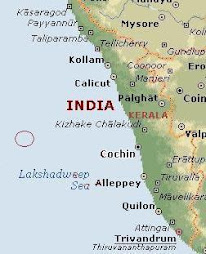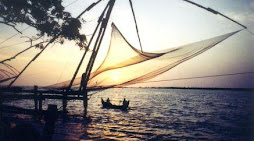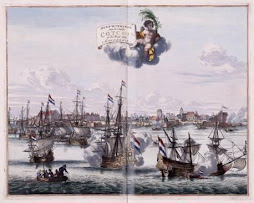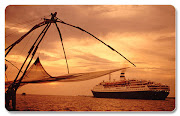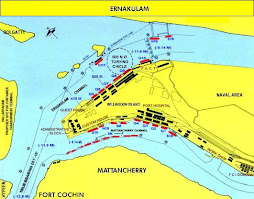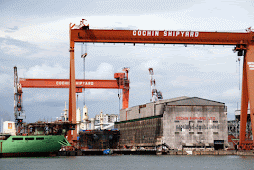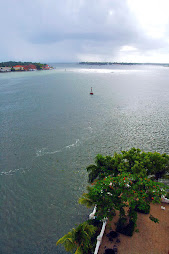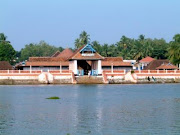“FREEDOM
OF NAVIGATION” AND THE SEIZURE OF SEA MAN
GUARD OHIO.
(SYAM KUMAR V.M., ADVOCATE, HIGH
COURT OF KERALA, COCHIN.)
Ship
Registry of the Republic of Sierra Leone has issued a press release yesterday calling
upon the Indian authorities to release the vessel SEA MAN GUARD OHIO which is
under detention in the Indian Port of Tuticorin. The interesting part in the
Press release is the attempted invocation of the concept of FREEDOM OF
NAVIGATION as crystallised under PART VII of Art. 87 of UNCLOS, to seek the
release of the vessel.
According
to the Indian Coast Guard, the said vessel was found within Indian maritime
zones with a cache of arms and ammunitions which she could not properly account
for. The Master, Officers and Crew of the vessel (including Indians) have been
arrested and are presently lodged in an Indian Prison in the State of Tamil
Nadu. They have been charged of violating under various Indian statues
including the Arms Act, etc.
The
press release by Sierra Leone Ship Registry comes after the contradictory,
legally imprudent and damaging statements issued by those concerned with the vessel in
the course of nearly two weeks after the incident.
To
top it all, the press release now purports to rely on PART VII of Art. 87 of
UNCLOS to seek release of the vessel. Though the attempt seems to be to pull in the controversial F.O.N. Programme of United States into the issue, the same if pursued would prove to be proverbial “Last
Nail on the Coffin” for SEAMAN GUARD OHIO.
Let
us briefly examine why.
The
relevant provision referred to in the press release reads as follows:
Article87
Freedom of the high seas
1. The high seas are open to all
States, whether coastal or land-locked. Freedom of the high seas is exercised
under the conditions laid down by this Convention and by other rules of
international law. It comprises,inter alia,
both for coastal and land-locked States:
(a) freedom of
navigation;
(b) freedom of
overflight;
(c) freedom to
lay submarine cables and pipelines, subject to Part VI;
(d) freedom to
construct artificial islands and other installations permitted under
international law, subject to Part VI;
(e) freedom of
fishing, subject to the conditions laid down in section 2;
(f) freedom of
scientific research, subject to Parts VI and XIII.
2. These freedoms shall be exercised
by all States with due regard for the interests of other States in their
exercise of the freedom of the high seas, and also with due regard for the
rights under this Convention with respect to activities in the Area.
The
issues that are propped up by one such contention of Sierra Leone are myriad
and manifold.
The
perceived relevance, if any, of the said Article that lead Sierra Leone to rely
on the same is apparently clause (a) that pertains to “Freedom of Navigation”. Does
it help the case of Sierra Leone? Have they realised the import of the “Right”
under Art. 90 upon the “freedom” under Art 87?
A
feeble contention is seen put forth now that the vessel was exercising its
“Freedom of Navigation” through the High Sea and was “illegally lured” in to
Indian Waters by the Indian Coast Guard and then an “Illegal” boarding and
searching was done leading to seizure and arrest.
If this is the best legal contention that Sierra
Leone could come forth with after nearly a dozen days of detention and seizure,
then it is going to be a field day for the Indian prosecuting agencies once the
matter reaches trial. Guess Sierra Leone is about to encounter, not one but
veritable packs of legal issues during trial which would see a generous use of
the strict norms under the law relating to evidence in force in India.
At
the threshold they might have to deal with the status of Sierra Leone registry as the purported “Flag
state”. No one likes being called a Flag of Convenience. But if it comes to a
trial, Indian prosecutors would dig right from the Nottebhom case onwards and would
beneficially proceed to such indeterminate premises like “genuine link” being
the “financial link”. Does Sierra Leone stand a chance? Well, an exit at the very
threshold could at least save them from further embarrassments.
Sierra
Leone while taking such contention appears to be blissfully ignorant of the
legal scenario in India which pertains to distances as far as its EEZ and the
ramifications it could have in the international legal back ground involving
PSSA vis a vis provisions of UNCLOS.
Indian
Parliament has enacted the SUA Act taking cue from the SUA Convention. The
boarding provisions in the convention which provides for boarding of a ship
even in the high seas when there exists reasonable grounds to suspect that the
ship or a person on board the ship is, has been, or is about to be involved in,
the commission of an offence under the Convention are not an anathema to Indian
Law.
The
issue is still unravelling. We need to wait. After the perceived triumph of
Indian Legal system and its diplomacy in the Enrica Lexie affair, which saw the
Italian Marines still languishing in India after being caught unaware, confused
and confounded within the virtual labyrinth of Indian legal system, now it
appears to be the turn of those concerned with SEA MAN GUARD OHIO.
Unfortunately
for those arrested and their family members, there appears to be long road
ahead, but for a diplomatic break
through which is doubtful once courts are seized of the matter.



